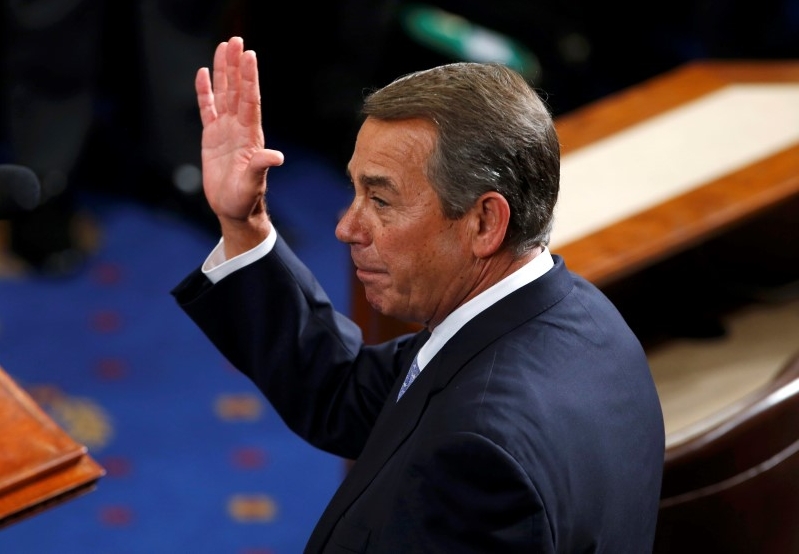
The U.S. House of Representatives on Thursday voted to install Republican Representative Paul Ryan as its new speaker, replacing John Boehner following a revolt by conservative lawmakers who forced his retirement.
Ryan won 236 votes among the 247 Republicans in the chamber, indicating that the Wisconsin congressman was deserted by only a handful of the conservatives who pushed out Boehner.
His main Republican challenger, Representative Daniel Webster of Florida, received nine votes, while former Secretary of State Colin Powell and Representative Jim Cooper of Tennessee each received one vote.
Ryan now moves to the number two succession spot for the presidency behind the vice president, a position he sought in 2012 as Mitt Romney's running mate.
Previously the chairman of the powerful House Ways and Means Committee, Ryan has served in the chamber since 1999. He is the architect of conservative budget plans that sought to rein in federal spending in part by cutting federal retirement and health insurance plans.
As the 54th speaker, Ryan's first challenge will be to avoid a government shutdown on Dec. 11 when funds for an array of federal agencies expire.
Boehner, in emotional farewell speech before the vote, said: "I leave with no regrets or burdens."
Hard line conservatives, who challenged Boehner's leadership over the past five years by pressing for quicker progress in shrinking government and tackling social issues, listened from their seats.
In what could be a direct warning to those lawmakers, Boehner advised: "Real change takes time. Yes, freedom makes all things possible, but patience is what makes all things real. So believe in the long, slow struggle."
(Reporting by Richard Cowan; Editing by Susan Heavey)






